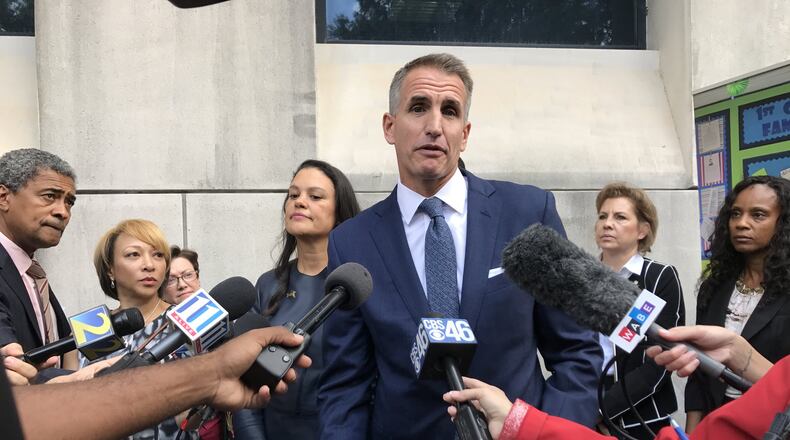A series of laws that would let residents vote to limit their property taxes in five north Fulton County cities and a local school district are awaiting the governor's signature, while attempts to ease tax obligations in Atlanta are still in the works.
There are no similar proposals in south Fulton cities, but in Alpharetta, Mountain Park, Milton, Johns Creek and Roswell, and for the Fulton County Schools, the legislature has approved new homestead exemptions for owner-occupied residences.
VIDEO: In other Legislative news
If the governor signs the legislation, residents in those districts would be able to vote in November on the measures, which would limit assessed values from going up more than 3 percent each year, regardless of the actual increase in property values on a home. Sandy Springs and Fulton County already have similar provisions.
The new legislation would use as the base year 2016, 2017 or 2018 — whichever year has the lowest assessed value for each home. Some property tax experts have criticized that aspect of the legislation, saying that because Fulton County has been slow to keep up with rising property values, residents whose homes have been undervalued will continue to pay less than their fair share in property taxes.
Property assessments sent last year indicate that most homes in the county were undervalued — values on half the county's residential parcels were up at least 20 percent last year. Residents, shocked by the large jumps, protested the higher values. The county froze 2017 property values at 2016 levels, and petitioned the court to keep them there after the state Department of Revenue rejected Fulton County's tax digest. A court date has not been sent.
Even if voters pass the laws, though, they would not be effective until 2019. That means property values in 2018 are likely to rise, as are tax bills — though cities, the county and school districts can always reduce their tax rates to ease residents’ obligations.
In Atlanta, there are three proposals that could affect the property taxes of residents.
One, HB 820, is similar to the north Fulton ones that passed. It would increase the homestead exemptions for residents in Atlanta by 2.6 percent each year, and would have the same three-year period for seeking the lowest base year. It has passed the House, and is currently in the Senate.
The city of Atlanta is supporting the legislation, and in a letter to legislators, Mayor Keisha Lance Bottoms thanked them for “your efforts to ensure predictability and fairness for Atlanta property taxpayers.” Rep. Beth Beskin, R-Atlanta, who sponsored the legislation, said she thinks the legislation is “as fair as we can be.”
Whenever tax caps are put in place, Beskin said, some neighbors think they are paying more than others. But with each home that sells, the house will reset to the current fair market value, and Beskin said, the issue of too-low assessments will eventually work itself out.
Two other bills that would affect residents who pay Atlanta Public Schools taxes were introduced this week. One, SB 485, would increase the maximum homestead exemption for the schools from $30,000 to $50,000. That would reduce the tax obligation for the school district, which accounts for more than half of what residents pay in property taxes.
Another bill, SB 486, would go even further for seniors. It increases the maximum homestead exemption for schools to $100,000. Sen. Jen Jordan, D-Atlanta, who sponsored those bills, said she conducted "stress tests" to ensure the schools would still have enough money to meet their budgets if the laws passed.
“The intent of this is not to starve education,” she said.
All three of the Atlanta proposals would also have to be approved by voters in November, if they pass the legislature.
MYAJC.COM: REAL JOURNALISM. REAL LOCAL IMPACT.
The AJC's Arielle Kass keeps you updated on the latest happenings in Fulton County government and politics. You'll find more on myAJC.com, including these stories:
Never miss a minute of what's happening in Fulton politics. Subscribe to myAJC.com.
About the Author
Keep Reading
The Latest
Featured




